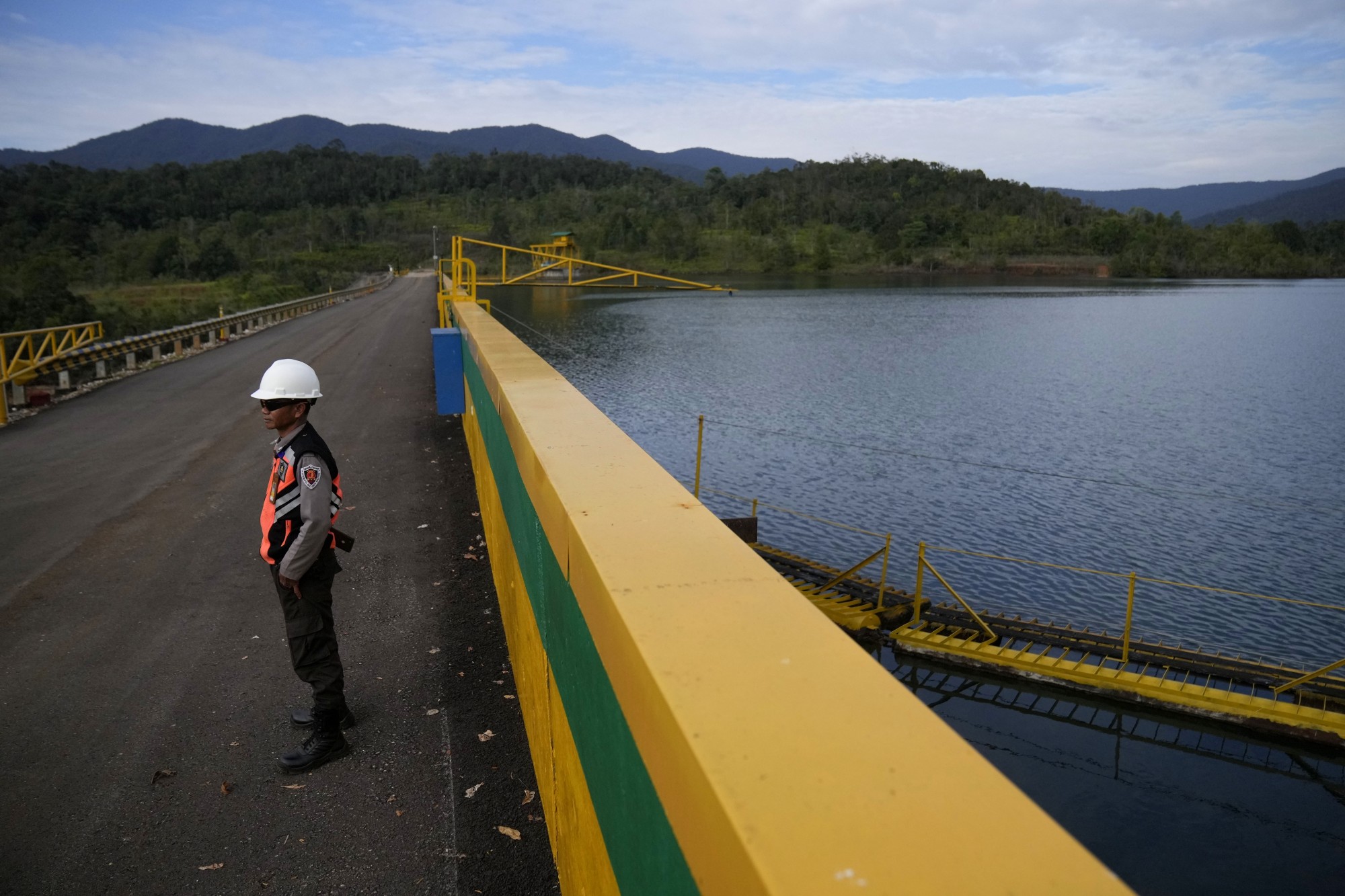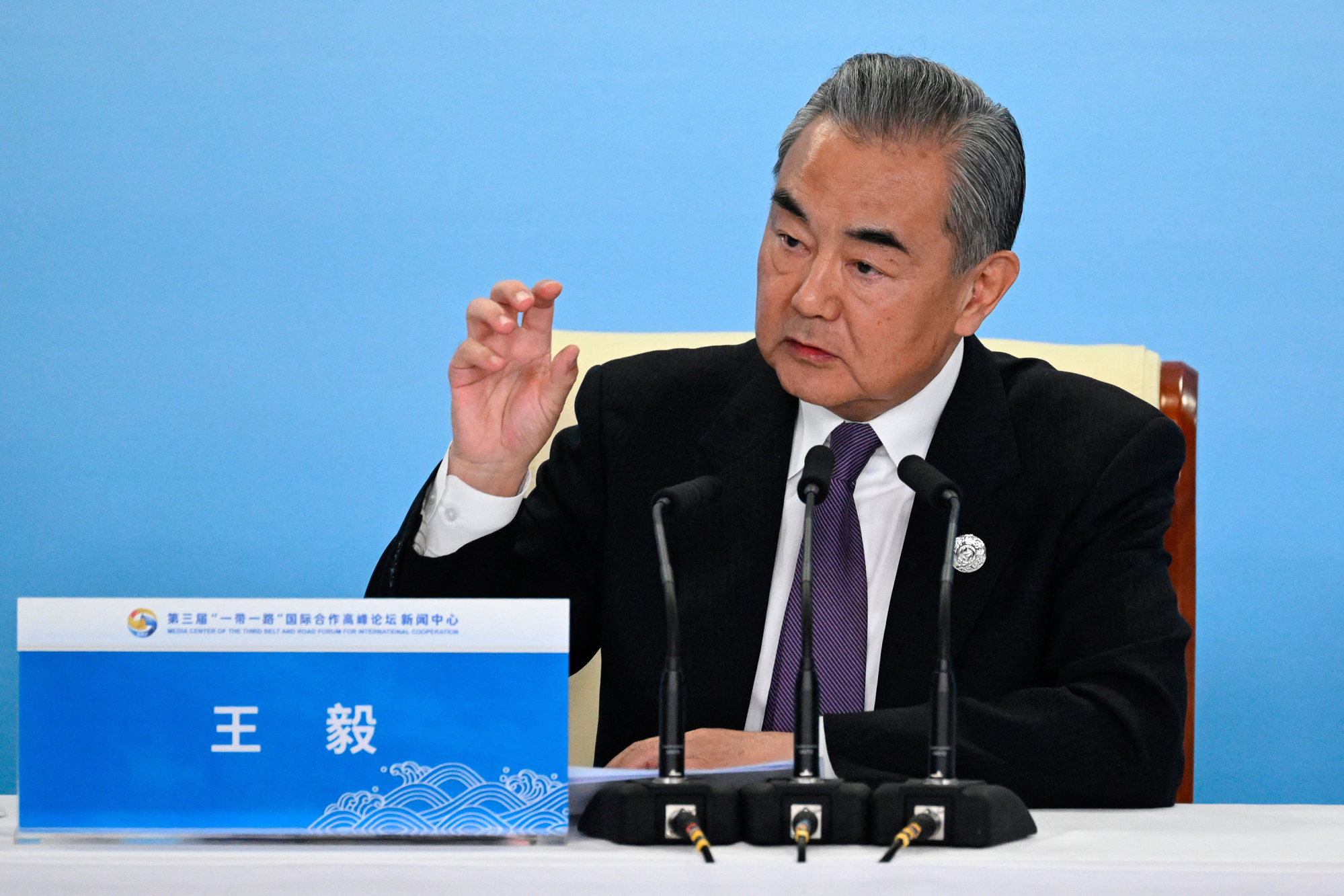
Indonesia to bank on G7 investment deal to make huge emission savings, in boost for green transition
- The plan aims to restrict peak CO2 emissions from the power sector to 250 million tons, allowing Indonesia to generate 44 per cent of its energy from renewables by 2030
- Success or failure of the JETP deal will shape Indonesian and Southeast Asian perceptions on whether the US can deliver on big economic initiatives, analysts say
Indonesia will generate 44 per cent of its energy from renewables by 2030, details of a US$20 billion US and Japan-driven investment deal promised on Wednesday, dangling the prospect of saving tens of millions more tons of carbon emissions within the next seven years.
The plan, designed by the G7 to help Indonesia’s decarbonisation as part of the Just Energy Transition Partnership (JETP), only provides enough money to retire two coal-fired power plants of Indonesia’s 118 plants.
But it should restrict peak CO2 emissions from the power sector to 250 million tons instead of a projected 350 million by 2030.
Can US be serious on climate, while coughing up for Indonesia oil refinery?
Indonesia was the world’s ninth-largest source of CO2 emissions in 2021 according to data from the European Commission, with coal plants last year providing 67.5 per cent of the country’s electricity.
The JETP is seen as a kickstart to climate commitments in a country where green policy often falls short of promises.
It also represents a significant step in efforts by the United States and its allies, that form the International Partners Group, to win over developing nations seeking to decarbonise – a space contested with China.
“The JETP deal is important geostrategically because its success or failure – and specifically its ability to mobilise and deliver promised financing – will shape Indonesian [and Southeast Asian] perceptions on whether the US can deliver on big economic initiatives,” said Scot Marciel, former US ambassador to Indonesia and now a fellow at the Freeman Spogli Institute for International Studies. “The US inability to do so to date has hurt its standing in the region.”
Those efforts come in competition with China’s Green Belt and Road Initiative, which has funded dams, electric car factories and solar farms in Southeast Asia. How successful the agreement will be remains to be seen, according to experts and renewable energy industry insiders, who say Indonesian climate commitments are often eroded by the realities of fast growth and capricious policymaking and enforcement.

Western officials privately grumble about Indonesia’s unwillingness or inability to carry out the reforms needed to make renewable energy competitive, including by improving energy procurement processes and ending policies effectively subsidising coal power.
“You want to be encouraging of JETP … and as an initiative it’s exemplary,” said Dacre Purchase, director and COO of UPC Renewables Indonesia. “But there’s great cynicism among investors about whatever plans Indonesia announces.”
The US$20 billion in funding has been split into two parts, with half provided by countries that form the International Partners Group and half from private lenders.
Indonesia in fact needs US$96.1 billion to meet the decarbonisation targets laid out in the plan, according to Fabby Tumiwa, a member of the JETP working group and executive director of the Institute for Essential Services Reform.
“I’m cautiously optimistic that the JETP deal will succeed,” Fabby said, but stressed that to do so all parties would need to live up to their commitments, not just Indonesia.
He points to how IPG countries have yet to follow through on their commitments to fund coal retirement, and how US domestic politics can often interfere with its ability to provide funding to foreign countries.
G20: Indonesia signs US$20 billion deal for ‘promising path’ to clean energy
To make up the missing billions, the IPG and Indonesia plan to use the initial capital from governments and other public bodies to “derisk” projects and lure investment by major Western financial institutions.
More cash is also not enough on its own, according to people involved in Indonesia’s renewable energy industry. Much depends on whether the Indonesian government is prepared to undertake reforms needed to make renewable energy competitive in Indonesia.
To date, the only policy reform mentioned implemented is relaxing local content requirements for solar panels.
Other proposed changes are laid out in the policy document but have yet to be implemented, including to make power purchase agreements more bankable, and strengthening renewable energy financing policies.
The US has also launched JETP agreements with South Africa, Vietnam and Senegal – three other strategically significant developing countries. However, the deal with South Africa has run into serious trouble and looks near moribund, while the other two are still in very early stages.

Speaking at the Belt and Road Initiative conference in October, Wang Yi, China’s head of foreign policy, explicitly challenged America on whether it could deliver on its fine words, saying that while the US was military-oriented, China’s focus was development.
“Maybe we could have a competition globally about who can build more roads, railways and bridges for developing countries,” he said.
Chinese companies already play a key role in expanding Indonesia’s infrastructure, as well as growing domestic green energy industries such as nickel processing for electric vehicles.
The Indonesian government, however, has said it has no intention of picking geopolitical sides as it seeks to drum up investment for its green transition – in keeping with its long commitment to non-alignment in international diplomacy.
Indonesia’s emissions surge as Asia seeks more energy-intensive data centres
“This agenda is too important to be left to one partnership,” said Rachmat Kaimuddin, deputy coordinating minister for maritime and investment affairs, who has played a key role in the JETP negotiations.
In mid-October, Indonesia’s President Joko Widodo attended the belt and road forum in Beijing where he met President Xi Jinping and asked that China invest in renewable energy in Indonesia.
The next day, Indonesia’s state energy producer PLN signed at least nine MOUs worth US$54 billion with Chinese companies to develop renewable energy in Indonesia.

